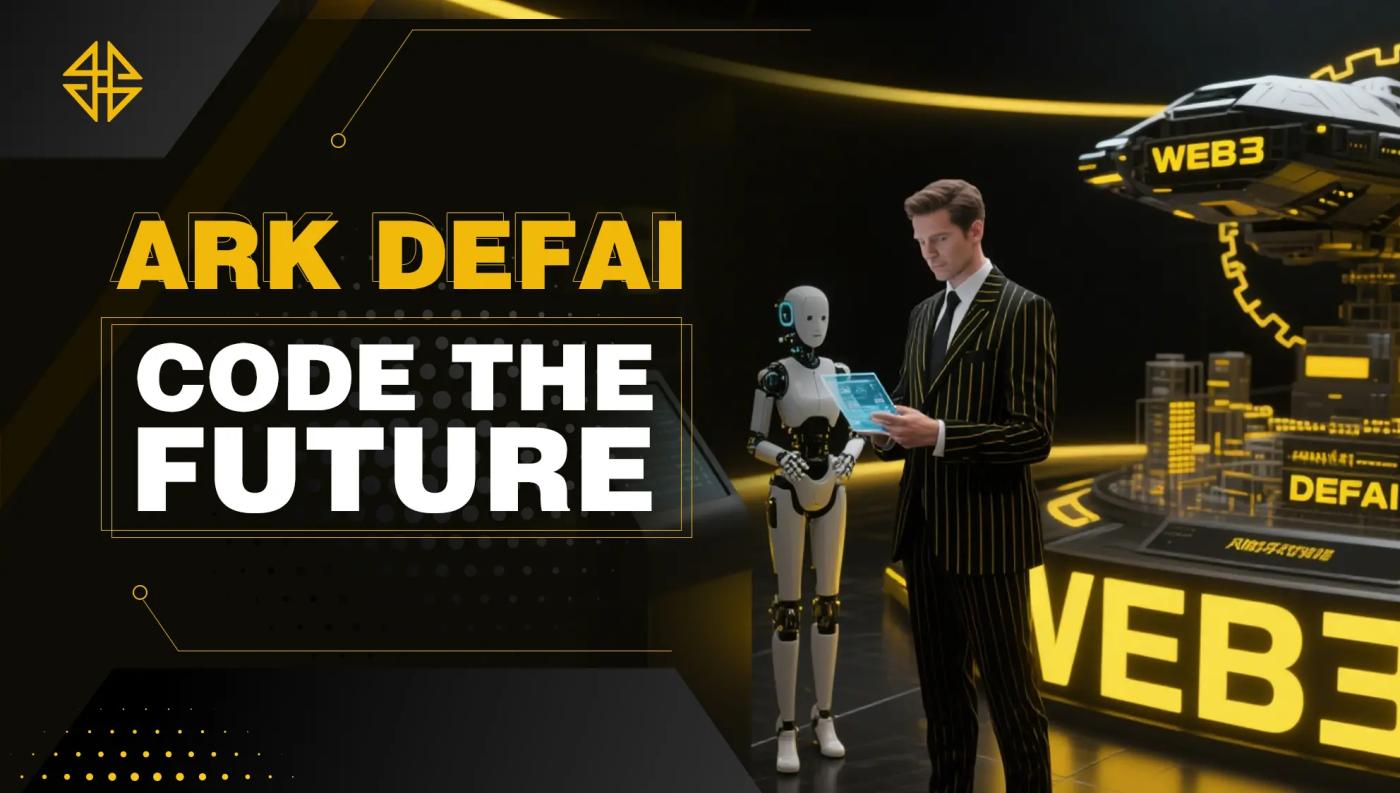On July 4th, Bitcoin.com published an in-depth report titled 'From Wall Street to Wallets: ARK DEFAI Redefines the Architecture of Finance', focusing on an experiment called the "decentralized intelligent civilization framework" - ARK DEFAI. The project is composed of an anonymous group of contributors with backgrounds from Lido, Olympus DAO, and ChatGPT, attempting to merge AI governance, DAO protocols, and modular structures into a new type of digital coordination system.

The report points out that ARK is not a single product or revenue protocol, but a modular, upgradable, AI-assisted decision-making coordination layer. Its core value is not to replace financial institutions, but to reconstruct how protocols bear the responsibility of trust and decision-making.
"We're not just redesigning financial incentives—we're rethinking the very foundations of economic and social coordination."
—— Carmelo Ippolito, Core Contributor of ARK DAO
Modular Economy: Shifting from Treasury Control Logic to an AI-Driven Self-Regulation System
The economic system proposed by ARK is an intelligent logic network composed of modular units, no longer relying on traditional treasury management or linear token issuance strategies. Its structure contains five modules:
EM (Emission Manager): Adjusting token issuance based on user participation and protocol load
RBS (Range Bound Stability): Algorithmic maintenance of token price fluctuations within a preset range
YRF (Yield Revenue Feedback): Using protocol revenues for buyback or token issuance rhythm adjustment
MCL (Minting Cap Limit): Dynamically controlling token supply cap to prevent excessive inflation
RCM (Runway Control Module): Adjusting incentive intensity based on sustainability, combining predictive models
This modular system has instant response capabilities and drives protocol logic evolution through AI model parameter feedback. Each module can be independently governed, adjusted, and replaced, forming a truly "parameterized institutional" design.
Governance is Not Just Voting, But Co-Creation and Training of Protocol Behavior
The governance model proposed by ARK is built on trainable logic. The community does not just vote on proposals but collaborates with AI models to optimize the overall logical system.
Governance participants can do so through:
ARK Power Non-Fungible Tokens: Obtaining time-weighted governance influence
AI Review Process: Proposals are first screened for semantic and logical risks before community voting
Simulation Tools: Data simulation of decision consequences to enhance proposal predictability
Reputation Governance Model: Increasing governance weight based on behavioral trajectory and participation depth
This makes the governance process not just a "voting behavior" but a collective process of training the protocol model.
ArkLand: Making Protocols Extend Beyond Finance into Social Model Construction
ARK further extends its logic to the application layer, launching ArkLand - a digital society prototype controlled by modular AI, covering five domains:
Arkonomics: Trainable financial agents and strategy modules
Edunet: AI-assisted learning, language understanding, and skill coaching
Vitality: Life management, health habit modeling, and behavior reinforcement tools
Connect: Non-Fungible Token on-chain social and content interaction agents
Creator Layer: No-code AI module construction and governance module profit-sharing system
Each module can be trained, adjusted, and governed by users, forming a highly composable module civilization test field.
From Financial Protocol to Coordination System: The Narrative Level Advancement Initiated by ARK
The design concept promoted by ARK is transforming protocols from "financial products" to a logical institutional carrier. From this narrative perspective:
Protocols are not just applications, but public logical infrastructure
Governance is not just voting, but co-training of models and institutions
Economic modules are not reward distribution tools, but parameter-driven order regulation networks
The application layer is not a service frontend, but a modular experimental field for protocol sociology
This design brings a new protocol prototype of sustainability, organic evolution, and modular governance to the Web3 world. When the protocol itself begins to possess the ability to observe, adapt, and decide, it is no longer just a "decentralized trading platform", but an infrastructure with the potential for coordinating order, institutional construction, and civilizational consensus.








